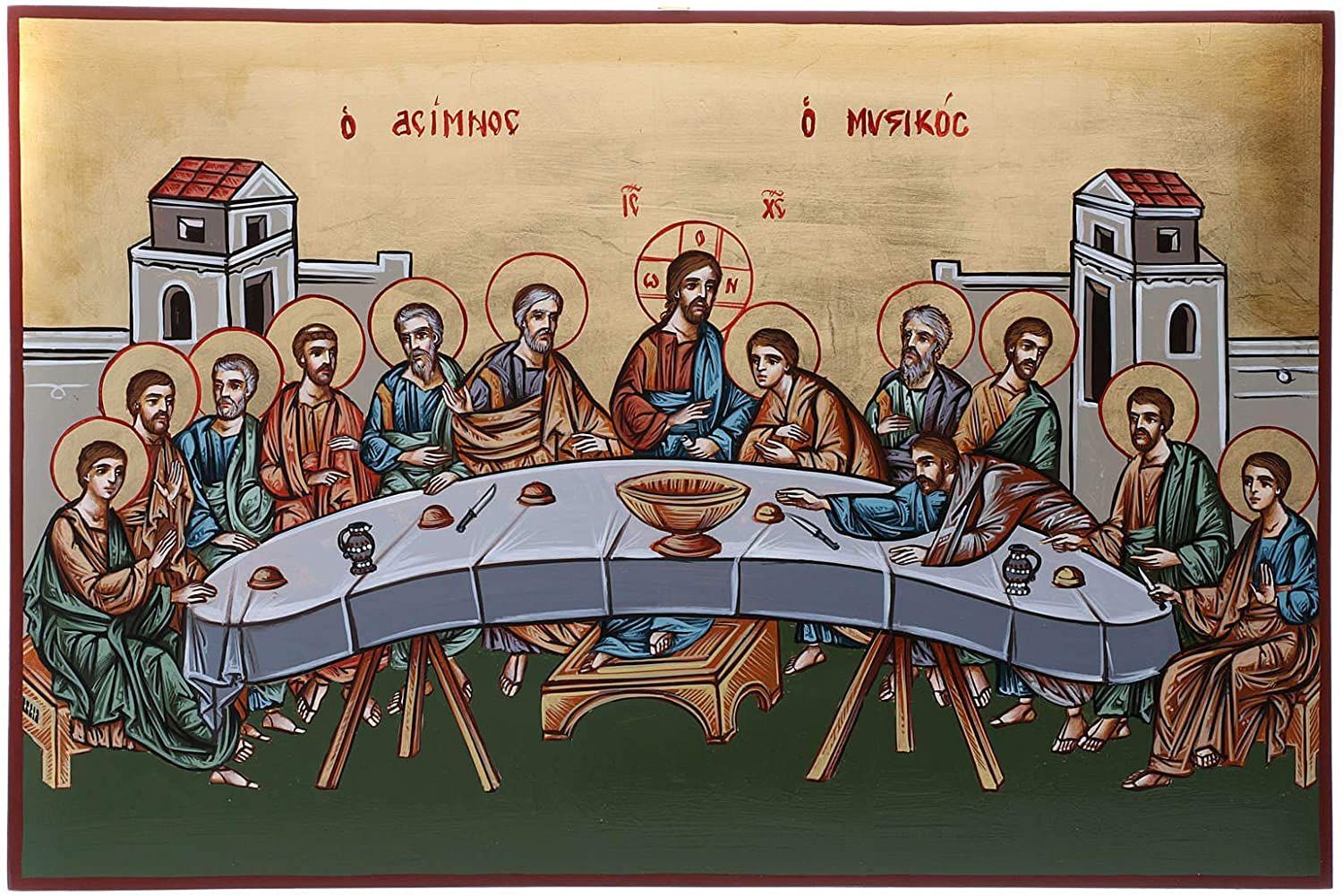Message of Abbot Paul - Maundy Thursday 6th April 2023
Abbot Paul • April 6, 2023

Although today is Maundy Thursday, when in all parishes we commemorate the Last Supper with a Solemn Evening Mass, after which there is a procession of the Blessed Sacrament to an altar of repose, that symbolises the Garden of Gethsemane, nevertheless it is also the day when traditionally every bishop celebrates the Chrism Mass in his cathedral surrounded by his priests and deacons. Although it is called the Chrism Mass, because Holy Chrism is consecrated during the Mass, other holy oils, the Oil of the Sick and the Oil of Catechumens, are also blessed. I thought that today, for a change, I would say a brief word about this Mass and the Gospel read at it.
First of all, it should be said that most dioceses now celebrate this Mass with a few days anticipation to avoid a rush on Maundy Thursday and to enable more priests and layfolk to be present at the Mass in the cathedral as well as at the Mass of the Lord’s Supper in their parishes. Likewise, although traditionally the Oil of the Sick was blessed during the Eucharistic Prayer, while the Oil of Catechumens was blessed and Chrism consecrated after Communion, today bishops are free to move things around a bit, if it is more convenient. In addition to blessing and consecrating oils, it’s also now become the custom for priests to renew their priestly vows or promises, the ones they made at their ordination to the Sacred Priesthood. You can find all the texts in your Missal, so do read them, if you have a spare moment.
The Gospel at the Chrism Mass is taken from Luke, (Lk 4: 16-21), where Jesus returns to Nazareth, where he is about to preach his first homily in the synagogue there on the sabbath day. Luke remarks that Jesus always attends synagogue on the Sabbath. The section he reads from Isaiah is the following.
“The spirit of the Lord has been given to me,
for he has anointed me.
He has sent me to bring the good news to the poor,
to proclaim liberty to captives
and to the blind new sight,
to set the downtrodden free,
to proclaim the Lord’s year of favour.”
Jesus is anointed with the Spirit, because he comes to bestow the Spirit upon us, and he does that, as Messiah, by anointing us with holy oil. Isaiah also gives an indication as to why Jesus is anointed, and so why we are anointed.
What is really interesting is what follows in the synagogue sequence. “He then rolled up the scroll, gave it back to the assistant and sat down. And all eyes in the synagogue were fixed on him. Then he began to speak to them, ‘This text is being fulfilled today even as you listen.’” Jesus himself tells them that the text he has read is being fulfilled before their very eyes, that he is the Messiah foretold by Isaiah. Jesus is the anointed one and the one who will impart mercy and grace on those with whom he shares his Spirit through holy anointing. The Church is the anointed Bride of Christ and Maundy Thursday, the day on which Christ lavishes on his Church all her Sacraments, his gifts of grace and life, hope and salvation.









